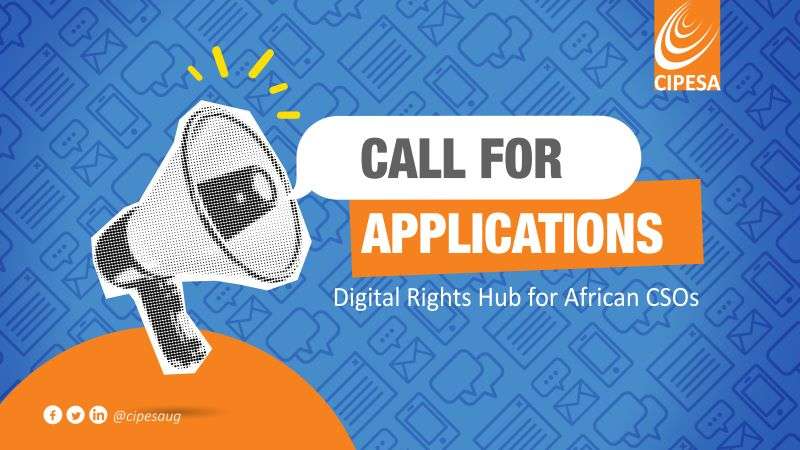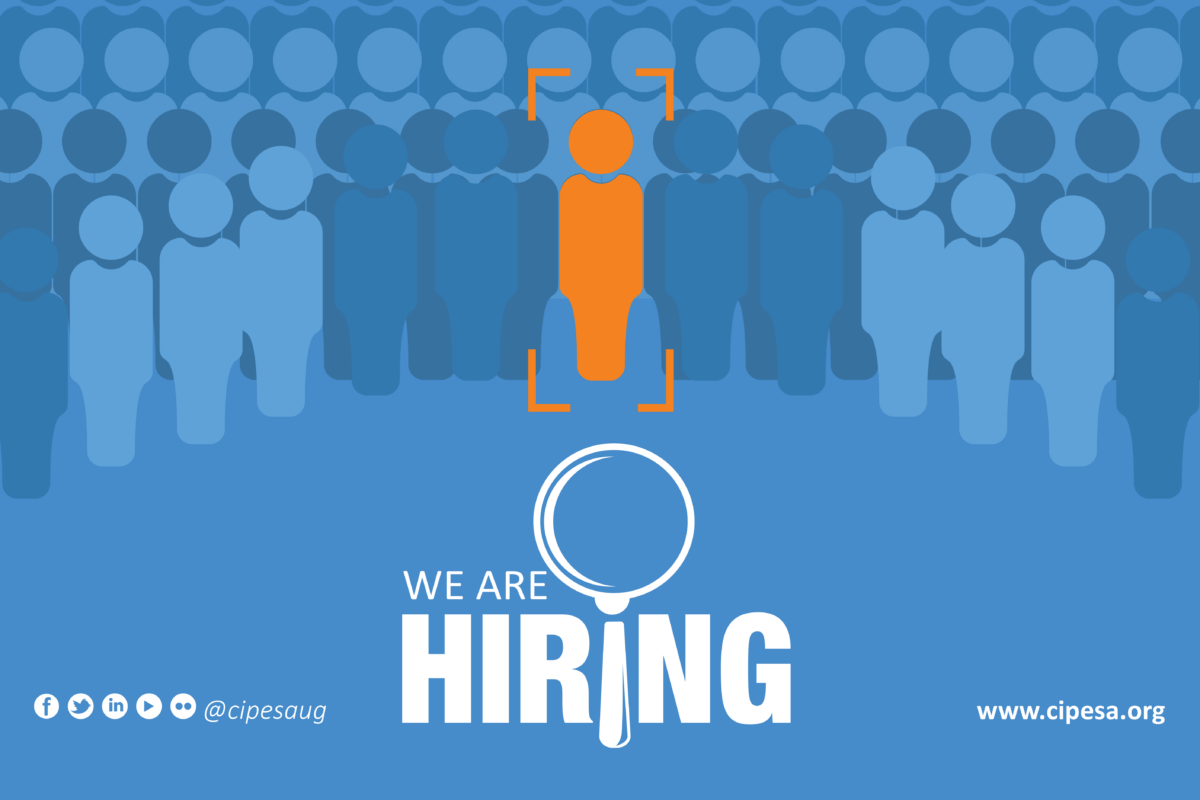Announcement |
We are searching for a Procurement Officer who will be responsible for the efficient coordination and management of procurement functions for CIPESA.
See below for further details;
Job Description
Position: Procurement Officer
Organisation: Collaboration on International ICT Policy for East and Southern Africa (CIPESA)
Location: Kampala, Uganda
Duration: Two (2) years Full time- renewable
Reports to: Programme Manager
About Us: Established in 2004, CIPESA is a leading centre for research and analysis of information aimed to enable policy makers in the region to understand ICT policy issues, and for various multi-stakeholders to effectively use ICT to improve governance and livelihoods. Our work responds to shortage of information, resources and actors consistently working at the nexus of technology, human rights and society in Africa. We conduct our work mostly through research, advocacy, capacity development, and convenings.
Main Purpose of Job:
The Procurement Officer is responsible for the efficient coordination and management of procurement functions for CIPESA. The position holder will procure Program supplies, services and equipment, whilst ensuring good practices and maintaining audit-compliant records. You will ensure that all purchases of goods and services are done transparently, at the best available price, and in compliance with Organisational and donor procurement policy and procedures.
Key responsibilities
- Procurement: Responsible for implementing the procurement plan and strategy and ensuring all procurement needs are met on time in line with Global Supply Chain best practices (GSC) and donors’ standards, the role holder will:
- Act upon submission of duly approved Purchase Requests (PR). Educate and support customers to ensure timely submission of approved PRs with sufficient details and realistic delivery target dates.
- Process approved Purchase requisitions ensuring data accuracy.
Initiate and process Request for quotations (RFQ) and Request for proposals (RFP).
Prepare bids analysis and other bidding documents for approval.
Conduct negotiations with suppliers that are transparent and documented.
- Receive invoice and control against original order, advance payments/instalments already delivered, request for payment.
For goods: Facilitate delivery of orders and collect Goods Received Note.
For services: Facilitate delivery of services and ensure that the period of guarantee, after-sales service is mentioned.
- Collaborate with all departments by Coordination with finance and programmes to ensure smooth and timely procurement.
- Procurement Planning
Working closely with internal and external partners, you will effectively plan and support programme implementation by:
- Collecting, organising, and analysing market information and data to enable effective procurement planning.
- Preparing and implementing procurement plans following related Organisational procurement Standard Operating Procedures (SOPs).
- Monitor supply market and conduct market surveys & analysis to ensure value for money in procurement.
- Create and update supplier and price lists.
- Contract Management
Lead the contracting process so that the terms and conditions, and contracting procedures as provided by Global Supply Chain best practices are followed. To achieve this, you will:
- Prepare and execute contracts for recommended bidders
- Ensure timely renewal of qualifying contracts and agreements
- Execute contracts against set requirements and performance indicators
- Supplier Management
The role will lead supplier relationships and performance to ensure that Suppliers adhere to Service Level Agreements (SLAs), and that there is precise record keeping. This includes:
- Maintaining suppliers’ files and documentation
- Monitoring and documenting supplier performance
- Compliance and Ethics
You will assist in identifying and analysing compliance risk in procurement processes and in implementing donor rules & regulations for all procurements by:
- Implementing due diligence for suppliers, including by conducting reference checks, and supplier visits.
- Providing consistent and constructive support to other departments to ensure compliance with policies and procedures.
- Identifying and reporting procurement red flags across the procurement value chain.
- Implementing corrective action plans (CAPs) in response to internal and/or external audit queries.
- Reporting
You will support timely and accurate reporting by:
- Preparing and submitting accurate monthly reports to the Programme Manager on time.
- Supporting with developing and updating the procurement plans as required.
- Submitting periodic procurement tracking reports for specific procurements assigned.
Functional skills and knowledge (REQUIREMENTS):
- Degree in Procurement, Supply Chain Management, Business Administration or Financial Accounting and related fields.
- 3-4 years of work experience in supply chain operations (Procurement).
- Experience working with NGOs is an asset.
- Knowledge of donor procurement and accounting systems is an advantage.
Demonstrated Skills and Competencies:
- Knowledge of generic procurement procedures and practices.
- Good collaborator with effective interpersonal and analytical skills who work seamlessly across cultures, organisational units and suppliers.
- Knowledge and experience in procurement plans, strategies, market analysis techniques, procurement and contracting.
- Good negotiation skills.
- Excellent skills in conducting market analysis and sourcing strategies.
- Ability to work effectively in a matrixed structure
- Knowledge of USAID reporting requirements and standards is a plus.
Standards of Professional Conduct:
CIPESA staff and partners must adhere to the values and principles outlined in the Code of Conduct, Equal Opportunity Policy, and Safeguarding against Sexual Exploitation and Abuse and Sexual Harassment (SEAH) Policy. In accordance with these CIPESA operates and enforces policies on Beneficiary Protection from Exploitation and Abuse, Child Safeguarding, Harassment-Free Workplace, Fiscal Integrity, Anti-Retaliation, and several others.
Application Process:
Kindly send applications to [email protected] latest September 12, 2023 at 18:00 East African Time (EAST), including a cover letter outlining how you fit the job requirements and your areas of expertise; a CV; names and contacts of three referees and the salary expectations.



